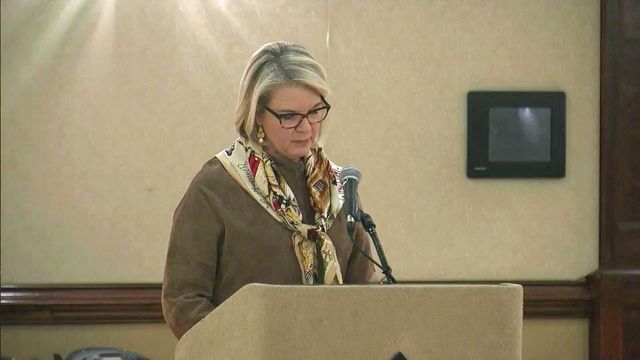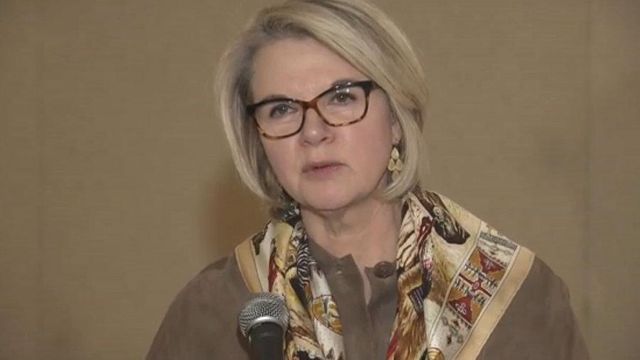Spellings tells UNC Board of Governors she will not micromanage
Margaret Spellings pledged on Friday to prove herself as a leader who would foster an affordable and accessible UNC system despite facing vocal criticism and protests over her appointment.
Posted — UpdatedSpeaking for the first time in public before the UNC Board of Governors, Spellings acknowledged the acrimony that had accompanied the process through which she got the job as UNC system president. Police from the City of Greensboro and the University of North Carolina A&T provided security for the meeting.
"Much as been said of the process that has resulted in my selection and me personally," Spellings told the UNC Board of Governors at a retreat in Greensboro. Her voice cracking, Spellings continued, "I must say, after spending most of my career in service to the public, working on behalf of all students and with people of all points of view, I've been surprised by the intensity of the reaction, but I look forward to meeting with, talking to and learning from those who have questions about my record and my intentions."
After the meeting, Spellings insisted that her name would soon fade from the headlines.
"People are going to stop talking about Margaret Spellings when we get to work on the really stuff people in this state – taxpayers, students – care about," she said.
Since her appointment, however, board members have remained staunchly supportive.
Board member Craig Souza said the goal of this week's two-day retreat at the Grandover Resort was to discuss the roles and responsibilities of the Board of Governors and to rally around Spellings.
"We did that. All we lacked were pompons," Souza said.
Spellings spoke for about 10 minutes to the board, telling them that the university system faced complex challenges.
"We must excel in affordability as the state constitution calls us to do," Spellings told the board. "And we must provide the best chances in employment and in life. These goals must be clear and measurable."
Spellings made a particular point to reach out to poor and minority students, two groups that critics feared the Bush-era education official would leave behind if given license to reshape the university system.
"In a global knowledge economy, we are required to help more people, particularly people of color and those from first-generation and low-income backgrounds, to achieve at much higher levels," Spellings said. "We've not done this well in the past, and we continue to fall short now."
She pledged not to micromanage the 17-campus system, saying, "each campus has it's own distinct mission."
Spellings also said she would listen to critics and friendlier voices alike, and would head out on a listening tour of the system.
"I look forward to learning what makes the UNC community proud, what our stakeholders think are the most important issues facing us, and where they think there is work to be done," she said.
In other business, the board took notice of the protests that had disrupted their meetings over the past six months. They said that in the future, all visitors' bags would be searched and that media would be issued credentials.
"I don't think we're on edge, but we are concerned," said Chairman Louis Bissette. "We welcome everybody at our board meetings, but we cannot tolerate disruptive behavior in the first place. And we certainly can’t tolerate any violence – the type we saw at our last meeting. We hope that was an unusual situation. I’ve been around for a long time and have even protested some myself and understand what protestors mean to our society and they’re important. But, when it goes over the line and disrupts meetings, there is concern."
• Credits
Copyright 2024 by Capitol Broadcasting Company. All rights reserved. This material may not be published, broadcast, rewritten or redistributed.





